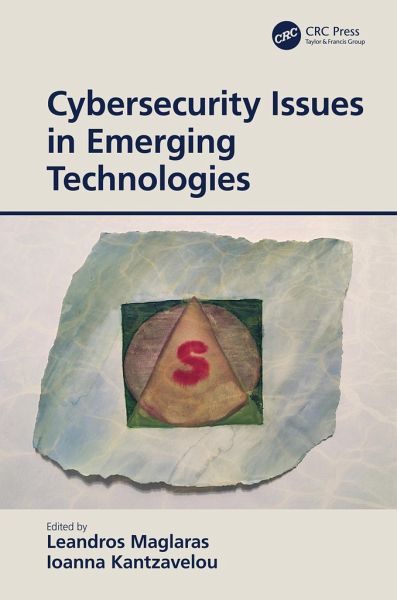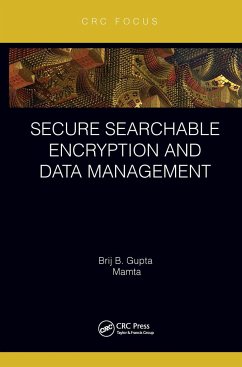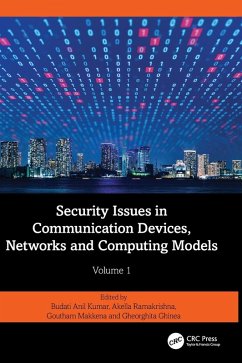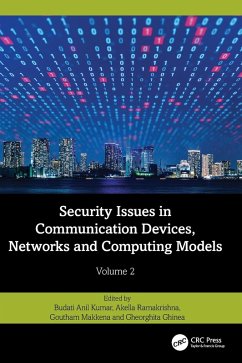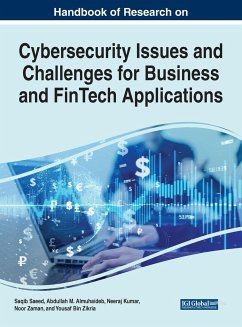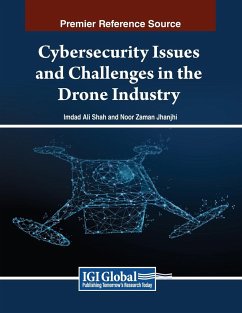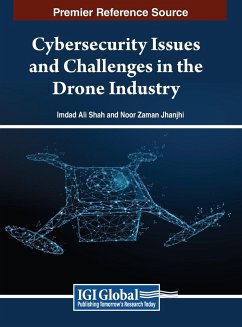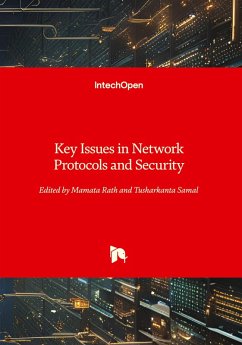Gebundenes Buch
Cybersecurity Issues in Emerging Technologies
Versandkostenfrei!
Versandfertig in 1-2 Wochen
Weitere Ausgaben:

PAYBACK Punkte
52 °P sammeln!




This book contains eleven chapters dealing with different Cybersecurity Issues in Emerging Technologies. . Both theoretical analysis and experimental evaluation of state-of-the-art techniques are presented and discussed.
Dr. Leandros A. Maglaras is an Associate Professor in the School of Computer Science and Informatics of De Montfort University, conducting research in the Cyber Security Centre. From September 2017 to November 2019, he was the Director of the National Cyber Security Authority of Greece. He obtained a B.Sc. in Electrical and Computer Engineering from the Aristotle University of Thessaloniki in 1998, M.Sc. in Industrial Production and Management from the University of Thessaly in 2004, and M.Sc. and Ph.D. degrees in Electrical & Computer Engineering from the University of Thessaly, in 2008 and 2014 respectively. In 2018 he was awarded a Ph.D. in Intrusion Detection in SCADA systems from the University of Huddersfield. He is featured in Stanford University's list of the world Top 2% scientists for the year 2019. He serves on the Editorial Board of several international peer-reviewed journals such as IEEE Access, Elsevier Array is the author of more than 150 papers in scientific magazines and conferences and is a senior member of the IEEE. Dr. Ioanna Kantzavelou is an Assistant Professor at the Dept. of Informatics and Computer Engineering at the School of Engineering of the University of West Attica. She received a B.Sc. in Informatics from the Dept. of Informatics of the Technological Educational Institute of Athens, an MSc by Research in Computer Security from the Dept. of Computer Science at the University College Dublin of the National University of Ireland, and a Ph.D. on Intrusion Detection in Information Technology Security from the Dept. of Information and Communication Systems Engineering at the University of the Aegean. She has worked in R&D projects funded by the Greek government, the Irish government, and the EU. Her published work includes chapters in books (IOS Press), conferences and journals, recording remarkable citations in her research work. She has joint editorship of three IOS Press collections. She has been a repetitive reviewer in many international conferences, such as ACM SEC, IEEE TrustCom, IFIP SEC, ESORICS, IEEE CIS, and she is currently a reviewer for high ranking journals, of IEEE, Elsevier, Springer, and Emerald. She is a member of the Greek Computer Society (GCS), of the ACM and of the IEEE Computer Society.
Produktdetails
- Verlag: CRC Press
- Seitenzahl: 228
- Erscheinungstermin: 18. Oktober 2021
- Englisch
- Abmessung: 240mm x 161mm x 17mm
- Gewicht: 511g
- ISBN-13: 9780367626174
- ISBN-10: 0367626179
- Artikelnr.: 62232579
Herstellerkennzeichnung
Libri GmbH
Europaallee 1
36244 Bad Hersfeld
gpsr@libri.de
Für dieses Produkt wurde noch keine Bewertung abgegeben. Wir würden uns sehr freuen, wenn du die erste Bewertung schreibst!
Eine Bewertung schreiben
Eine Bewertung schreiben
Andere Kunden interessierten sich für



